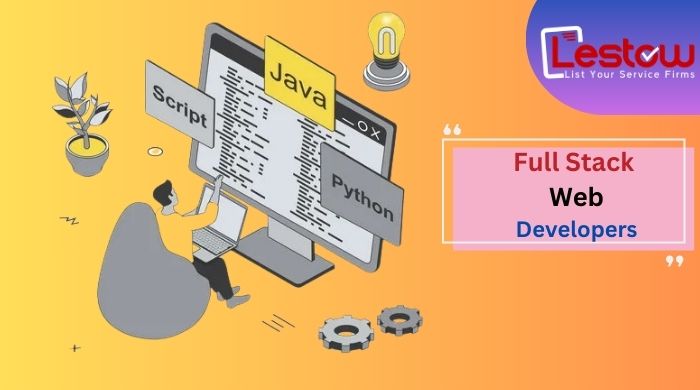In the ever-evolving world of web development, the term “full stack web developer” has become increasingly prevalent. But what exactly does this role entail, and what skills are required to be considered a full stack developer?
At the most basic level, a full stack web developer is an individual who has the knowledge and expertise to work on both the front-end and back-end components of a web application. They possess a diverse skillset that allows them to handle the entire web development lifecycle and that’s how full stack web developers revolutionize the digital world.
The “full stack” in the title refers to the developer’s ability to work across the entire technology stack — the collection of software components and tools used to build a web application. This typically includes HTML, CSS, and JavaScript for the front-end, as well as server-side languages like Python, Ruby, Java, or PHP, databases, and APIs.
What Skills Does a Full Stack Developer Need?
To be considered a full stack web developer, an individual must have a deep understanding of a wide range of technologies and techniques. Key skills for developer are
1. Front-end Development: Proficiency in HTML, CSS, and JavaScript is a must for any full stack developer. They should be able to build responsive, visually appealing user interfaces that provide a smooth and intuitive experience for the end-user.
2. Back-end Development: Full stack developer should be skilled in at least one server-side language, such as Java, PHP etc. They should be able to design and implement the logic that powers the application, handle user authentication, manage databases, and create APIs.
3. Database Management: Full stack developers should have experience working with various database technologies, including relational databases like MySQL or PostgreSQL, as well as NoSQL databases like MongoDB or CouchDB. They should understand database design principles, SQL querying, and data modeling.
4. Web Frameworks and Libraries: Proficiency in popular web frameworks and libraries, such as React, Angular, Vue.js, Django, Ruby on Rails, or Laravel, is highly valuable for a full stack developer. These tools organize the development process and provide a strong layout for building scalable and maintainable web applications.
5. Version Control: Full stack developers should be familiar with version control systems like Git, which allow them to effectively collaborate with other team members, track changes, and manage code deployments.
6. Testing and Debugging: Comprehensive testing and debugging skills are essential for a full stack developer. They should be able to write unit tests, integration tests, and end-to-end tests to ensure the quality and reliability of their code.
7. Deployment and DevOps: Full stack developers often need to be involved in the deployment and maintenance of the web applications they build. This may include setting up and configuring server environments, automating build and deployment processes, and monitoring application performance.
8. Problem-Solving and Adaptability: Beyond technical skills, full stack developers must be adept problem-solvers who can think critically and adapt to new technologies and challenges. They should be able to break down complex problems, research solutions, and come up with creative and efficient ways to implement them.
Crucial Aspects of Being a Full Stack Developer
The broad skillset of a full stack web developer offers several benefits, both for the individual and the organizations they work for:
1. Versatility: Full stack developers can contribute to various aspects of a web project, making them valuable assets to any development team. They can seamlessly transition between front-end and back-end tasks, providing flexibility and reducing the need for specialized roles.
2. Holistic Understanding: By understanding the entire technology stack, full stack developers can make more informed decisions and provide better solutions. They can anticipate potential issues and optimize the application’s performance and scalability.
3. Faster Problem-Solving: With their diverse skillset, full stack developers can often identify and resolve problems more quickly, as they can quickly diagnose and address issues across the front-end, back-end, and infrastructure.
4. Career Advancement: The ability to work on all aspects of a web application makes full stack developers highly sought-after in the job market. This can lead to better career opportunities, higher earning potential, and the chance to work on more challenging and rewarding projects.
Becoming a Full Stack Web Developer
Becoming a full stack web developer requires a significant investment of time and effort, as it involves mastering a wide range of technologies and techniques. However, the rewards of this path can be substantial, both in terms of job opportunities and personal growth.
Whether you’re just starting your web development journey or looking to expand your skills, the path to becoming a full stack developer can be challenging but ultimately rewarding. By continuously learning, practicing, and staying up-to-date with the latest industry trends, you can develop the comprehensive skillset that defines a true full stack web developer.

